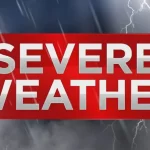Severe Weather Update – State of Emergency issued
March 15, 2025 – Gov. Tate Reeves has issued a State of Emergency in all counties affected by the severe storms that occurred across Mississippi on March 14 and March 15, 2025. The State of Emergency was issued just hours after severe weather impacted at least 21 counties across the state.
“I’m heartbroken by the destruction and loss of life caused by these storms,” said Reeves. “The state of Mississippi will continue to utilize every available resource to support our fellow Mississippians in need. We are committed to helping them rebuild. We’re here for the long haul. Please join me in praying for the families and friends of those who have lost loved ones during this difficult time.”
The Mississippi Emergency Management Agency continues to respond to the severe weather events that impacted the state on March 14 and 15. Preliminary reports indicate there are six fatalities: one in Covington County, two in Jefferson Davis County, and three in Walthall County. MEMA has also received preliminary reports of 29 injuries statewide: 15 in Covington County, two in Jefferson Davis County, two in Pike County, and ten in Walthall County. Life safety is the number one priority and damage assessments will begin soon.
The following is PRELIMINARY and will change through the assessment process. The following 21 counties have reported they have received some storm damage:
| Calhoun | Carroll | Chickasaw |
| Covington | Grenada | Humphreys |
| Issaquena | Jasper | Jefferson Davis |
| Lauderdale | Lee | Leflore |
| Marshall | Monroe | Montgomery |
| Newton | Pike | Sharkey |
| Simpson | Smith | Walthall |
Gov. Reeves directed all state agencies to discharge their emergency responsibilities as deemed necessary and set forth in Mississippi’s Comprehensive Emergency Management Plan.
Governor Reeves’ State of Emergency can be found here.
MEMA encourages residents who’ve sustained damage from this severe weather event to do the following:
- File an insurance claim.
- Take photos of the damage to the home.
- Report damage to county/MEMA via the self-report tool.
If citizens need something as a result of the storms, MEMA encourages them to contact their county emergency management agency. A list of contacts can be found here.
Gov. Reeves held a news conference on Sunday, March 16 to provide more information, which was posted on the Governor’s Facebook page. The Governor’s comments begin at the nine minute mark of the video.
If you need assistance with an insurance question or claim, call the Mississippi Insurance Department at 601-359-3569 or 1-800-562-2957, email consumer@mid.ms.gov or visit www.mid.ms.gov
“My thoughts and prayers are with those who lost their lives or were injured in the storms,” said Insurance Commissioner Mike Chaney. “My office is here to help anyone with property damage. The first step is contacting your agent and filing an insurance claim. After tornadoes and other disasters, insurance companies will reach out to those with the worst losses first. Insurance companies have representatives in all of the storm damaged areas.”
Follow these steps when filing a claim:
- · Prepare to file an insurance claim by gathering all relevant policy numbers.
- · File your claim as soon as possible. Your policy may require that you make the notification within a certain time period.
- · Be aware, if a widespread disaster has occurred, the company may set up special procedures.
- · Be sure you cooperate fully with the insurance company. Ask what documents, forms and data you will need to file a claim. Keep a record of all conversations with insurance companies, creditors or relief agencies.
- · If you are not staying on the property, make sure your insurance representative knows where and how to contact you.
- · If your home is damaged to the extent that you can’t live there, ask your insurance company if you have coverage for additional living expenses.
- · Take photographs/video of the damage. Inventory your home for damaged or lost items before your adjustor arrives. This will speed up your claim process.
- · Make the repairs necessary to prevent further damage to your property (cover broken windows, leaking roofs and damaged walls).
- · Don’t have permanent repairs made until your insurance company has inspected the property and you have reached an agreement on the cost of repairs. Be prepared to provide the claims adjuster with records of any improvements you made prior to the damage.
- · Maintain any damaged personal property for the adjuster to inspect.
- · Ask the adjuster for an itemized explanation of the claim settlement offer.
- · Be patient and assist claims adjusters assigned to your case. Small losses may be settled quickly; extensive claims will take longer.
- · Save all receipts, including those from the temporary repairs covered by your insurance policy.




